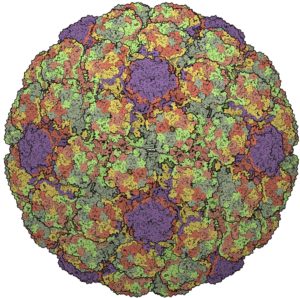

The human papillomavirus (HPV) vaccines save lives by preventing lethal cervical and anogenital cancers. If Henrietta Lacks had received an HPV vaccine, she would not have succumbed to cervical cancer. Yet not enough young men and women receive the vaccine. An obstacle to more widespread adoption of the HPV vaccine is that some parents and clinicians feel that it encourages risky sexual behavior. The results of a recent study indicate that such fears are unfounded.
The study addressed an issue which had not been previously investigated: the association between adolescent risk perceptions before and after HPV vaccination. The hypothesis of the study was that a greater perceived need for safe sex would be reflected in increased condom use, fewer sexual partners, and fewer diagnoses for
sexually transmitted infections.
The study subjects comprises 112 sexually experienced 13-21 year old females who completed self-administered surveys at the time of HPV vaccination and at multiple intervals thereafter. The key findings:
- Most women knew they were at risk for STIs after HPV vaccination and realized safe sexual behavior was needed.
- Need for safe sexual behavior was associated with use of a condom at last sexual intercourse.
- The need for safer sexual behavior was not associated with the numbers of sexual partners, or positive testing for STIs, since the last study visit.
The authors conclude that ‘adolescent girls who were sexually experienced at the time of HPV vaccination generally perceived themselves to be at risk of STIs other than HPV and believed that safer sexual behaviors were needed after vaccination.’
While the results of this study dispel a common myth about HPV vaccination, the message will not reach most parents who feel that immunizing with HPV will make their children more promiscuous. They can always use other excuses for denying HPV vaccine to their children. When my younger son was in high school he related a story about an HPV vaccine discussion in one of his classes. He said one girl recalled that her father would not let her have HPV vaccine because it caused polio. I suppose that some parents will use any lie to justify their decision.
What can be done to increase the uptake of HPV vaccine? In my opinion clinicians need to be aware of these study results, so they can emphasize to parents the importance of taking the HPV vaccine and the continued need for practicing safe sex afterwards.
Image: human papillomavirus (image credit)

Pingback: HPV vaccines do not encourage risky sexual behavior - Virology
Pingback: HPV vaccines do not encourage risky sexual behavior - VETMEDICS
I’m afraid, that, as you’ve described it, it may make parents feel their beliefs are justified. They don’t want their children as young as 13 to be sexually experienced, and will think that those in the study were already beyond moral help, and committed to a life of promiscuity, and took the vaccine as part of a toolkit that enabled them to go on being promiscuous.
They should have compared large cohorts of youths who had not been vaccinated, with similar cohorts of those who had, to see if there were any differences in sexual activity. I don’t see how reviewing attitudes of those already committed can answer the question.
:/
Vincent, let’s do a podcast about microbial predisposition to adverse vaccine reaction. Regarding HPV vaccine, a recent study found 56% increased risk of Celiac disease. And Celiac disease is linked with many autoimmune disorders including demyelinating diseases such as transverse myelitis which itself is known to be caused by vaccination. https://www.facebook.com/thegutclub23/photos/a.1277925552233310.1073741828.1225613454131187/2142900052402518/?type=3&theater
Perhaps the podcast could focus on your not understanding statistical significance.